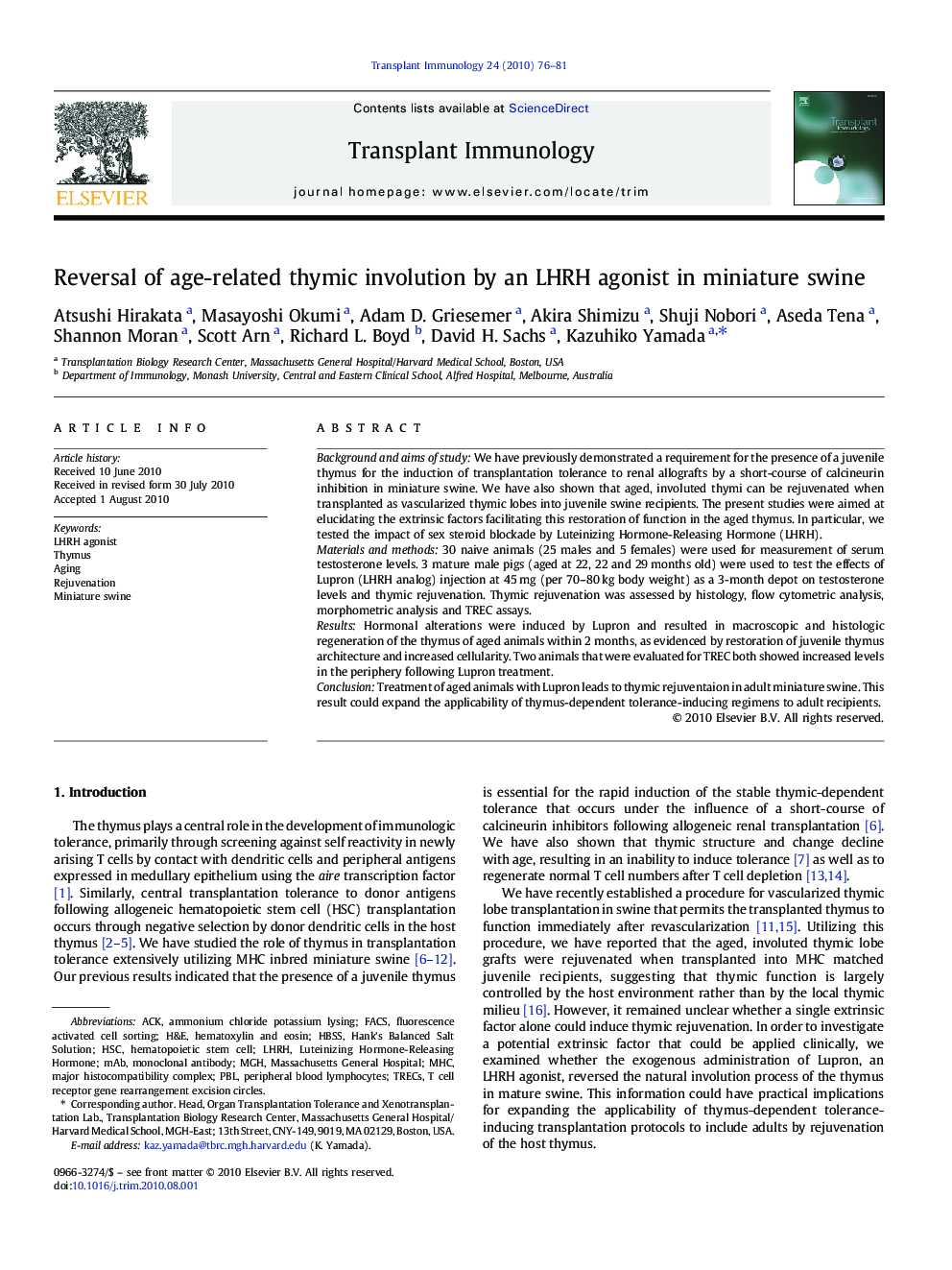| Article ID | Journal | Published Year | Pages | File Type |
|---|---|---|---|---|
| 3392220 | Transplant Immunology | 2010 | 6 Pages |
Background and aims of studyWe have previously demonstrated a requirement for the presence of a juvenile thymus for the induction of transplantation tolerance to renal allografts by a short-course of calcineurin inhibition in miniature swine. We have also shown that aged, involuted thymi can be rejuvenated when transplanted as vascularized thymic lobes into juvenile swine recipients. The present studies were aimed at elucidating the extrinsic factors facilitating this restoration of function in the aged thymus. In particular, we tested the impact of sex steroid blockade by Luteinizing Hormone-Releasing Hormone (LHRH).Materials and methods30 naive animals (25 males and 5 females) were used for measurement of serum testosterone levels. 3 mature male pigs (aged at 22, 22 and 29 months old) were used to test the effects of Lupron (LHRH analog) injection at 45 mg (per 70–80 kg body weight) as a 3-month depot on testosterone levels and thymic rejuvenation. Thymic rejuvenation was assessed by histology, flow cytometric analysis, morphometric analysis and TREC assays.ResultsHormonal alterations were induced by Lupron and resulted in macroscopic and histologic regeneration of the thymus of aged animals within 2 months, as evidenced by restoration of juvenile thymus architecture and increased cellularity. Two animals that were evaluated for TREC both showed increased levels in the periphery following Lupron treatment.ConclusionTreatment of aged animals with Lupron leads to thymic rejuventaion in adult miniature swine. This result could expand the applicability of thymus-dependent tolerance-inducing regimens to adult recipients.
